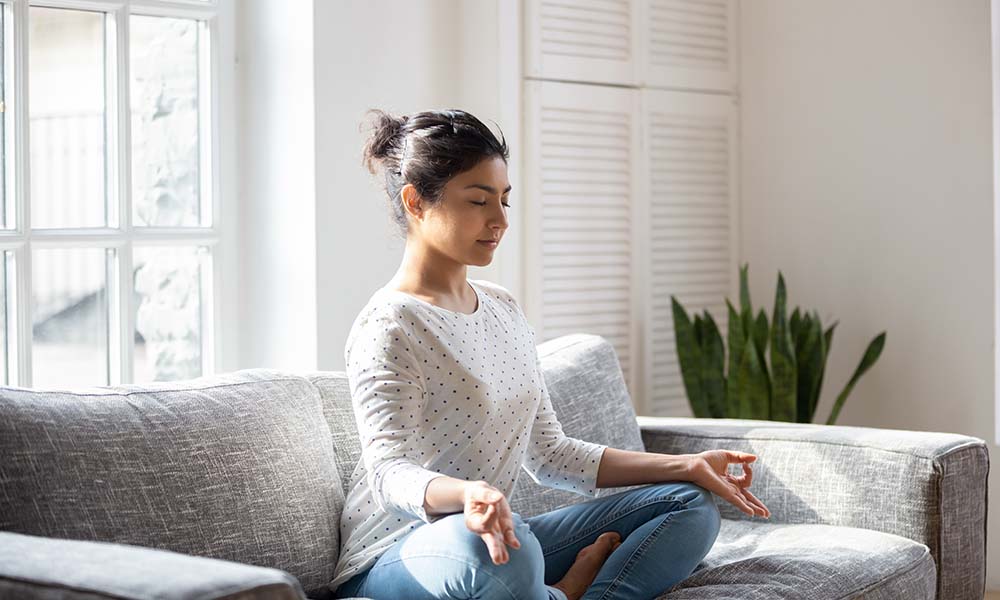10 Powerful Stress Busters: Techniques for Effective Stress Management

Life often involves stressful situations, and our body's natural stress reaction prepares us to deal with danger. Consider how satisfying it would be to deliver an outstanding speech in front of a large audience while under some stress.
However, our biological reactions to stress can harm our physical and mental health when a stressor is harmful and cannot be resisted or avoided, such as job layoffs or a loved one's medical emergency, or when the feeling of stress becomes persistent.
Fortunately, numerous tools are supported by science to help manage the harmful consequences of stress. It is advised that you perform any of the following discussed points:
Exercise

One of the finest methods to unwind your body and mind is to exercise regularly. Additionally, exercising will lift your spirits. But for it to be effective, you must do it frequently.
Exercise for up to 2 hours and 30 minutes at a moderate intensity, such as brisk walking, or 75 minutes at a higher intensity, such as swimming laps, jogging, or playing other sports.
Set realistic exercise objectives to ensure that you don't quit. Above all, keep in mind that any activity is preferable to none at all.
Music

If you are feeling overwhelmed by a stressful situation, take a moment to listen to soothing music. Playing soothing music lowers blood pressure and cortisol, a stress hormone, and has positive effects on the brain and body.
Furthermore, the healing power of Indian classical music has been acknowledged in various traditions, with studies showing promising results in reducing stress and enhancing overall well-being.
Deep Breathing

Stopping for a moment to breathe deeply can instantly relieve stress. You'll be surprised at how much better you feel once you've mastered it. Simply follow these steps:
Place your feet on the floor and sit comfortably with your hands in your lap. You could also choose to lie down. Close your eyes. Consider yourself in a peaceful environment. It can be somewhere relaxing, such as the beach, a beautiful field of grass, or a forest. Deeply inhale and exhale slowly. Spend 5 to 10 minutes doing this at a time.
Eat Well

A consistent, well-balanced diet will improve your overall well-being. It might also aid with mood regulation. Vegetables, fruit, nutritious grains, and lean protein should all be included in your meals if you want to feel full. It's terrible for you, can make you unhappy, and may even make you more stressed.
Speak to yourself about it
Sometimes it is not possible to phone a friend. If so, speaking gently to yourself might be a good alternative.
Just explain to yourself why you're anxious, what needs to be done to finish the task at hand, and most importantly, that everything will be fine. Don't worry about coming across as crazy.
Slow Down
Because of the hectic pace of modern life, perhaps all we must do is relax. Take an honest look at your life to find small ways to do it. As an example:
Aim your watch 5-10 minutes ahead. You'll show up at your locations a little earlier and avoid the stress of being late.
Move to the slow lane to avoid road rage while driving on the highway.
Break down larger tasks into smaller ones.
Laugh it off

Endorphins are released during laughter, which elevates mood and reduces cortisol and adrenaline levels, two stress-inducing hormones. Your neurological system is fooled into feeling good when you laugh.
Go Easy On Yourself
Regardless of how hard you try, realize that you can't accomplish everything flawlessly. Additionally, you have no control over things in your life. Therefore, quit assuming you can accomplish so much for yourself. Don't forget to maintain your sense of humour as well. You can feel a lot more at ease while you're laughing.
Sleep

All are aware that stress can make sleeping difficult. Unfortunately, insomnia is a major cause of stress. As a result of this vicious cycle, the brain and body become out of balance, which only worsens over time.
Ensure you get the recommended seven to eight hours of sleep per night. Allow yourself time to unwind before bedtime by turning off the TV and dimming the lights. It could be the most effective stress reliever on our list.
Hobbies

You should make time for your favourite activities. Doing something you enjoy will make you feel better and reduce your stress. Make an effort to do this every day. It doesn't have to be long; even 15 to 20 minutes will suffice.
Coping flexibility, or the ability to adapt the best coping technique to the needs of different situations, is more likely to be beneficial than coping rigidity.
Citations:
Physical Activity Basics and Your Health. (2024, March 26). Physical Activity Basics. https://www.cdc.gov/physicalactivity/basics/
Hegde, S. (2017). Music therapy for mental disorder and mental health: the untapped potential of Indian classical music. BJPsych International, 14(2), 31–33. https://doi.org/10.1192/s2056474000001732






